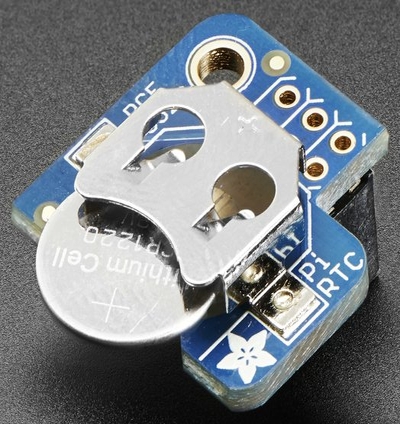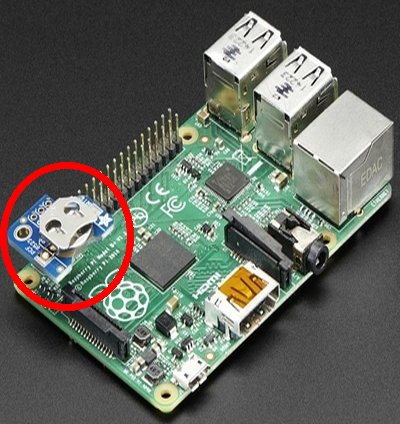1. introduction


2. installation
vi /boot/config.txt///
dtoverlay=i2c-rtc,pcf8523vi /etc/modules-load.d/rtc.confi2c-bcm2708
i2c-dev
rtc-pcf8523reboot3. testing
yum install i2c-toolsi2cdetect -y 1 0 1 2 3 4 5 6 7 8 9 a b c d e f
00: -- -- -- -- -- -- -- -- -- -- -- -- --
10: -- -- -- -- -- -- -- -- -- -- -- -- -- -- -- --
20: -- -- -- -- -- -- -- -- -- -- -- -- -- -- -- --
30: -- -- -- -- -- -- -- -- -- -- -- -- -- -- -- --
40: -- -- -- -- -- -- -- -- -- -- -- -- -- -- -- --
50: -- -- -- -- -- -- -- -- -- -- -- -- -- -- -- --
60: -- -- -- -- -- -- -- -- UU -- -- -- -- -- -- --
70: -- -- -- -- -- -- -- --

|
if UU → 68, check kernel module rtc_pcf8523 |
cat /proc/driver/rtc24hr : yes4. configuration
ntpdate ntp.belnet.be
date -s "$(date '+%Y%m%d %T')"cat /proc/driver/rtcrtc_time : 17:16:20
rtc_date : 2017-03-16
24hr : yeshwclock -s5. debugging
i2cdetect -li2c-1 i2c bcm2835 (i2c@7e804000) I2C adaptercat /etc/adjtimehwclock -r
hwclock -wi2cdump -y -f -r 0-6 1 0x68 c 0 1 2 3 4 5 6 7 8 9 a b c d e f 0123456789abcdef
00: 80 00 08 53 14 14 23 ?.?S??#The command i2cdump -y -f -r 0-6 1 0x68 c can be used to dump the first 7 registers of the ds1307 which contain the time
(the -f is needed only if you have the rtc driver installed; it overrides the reservation).